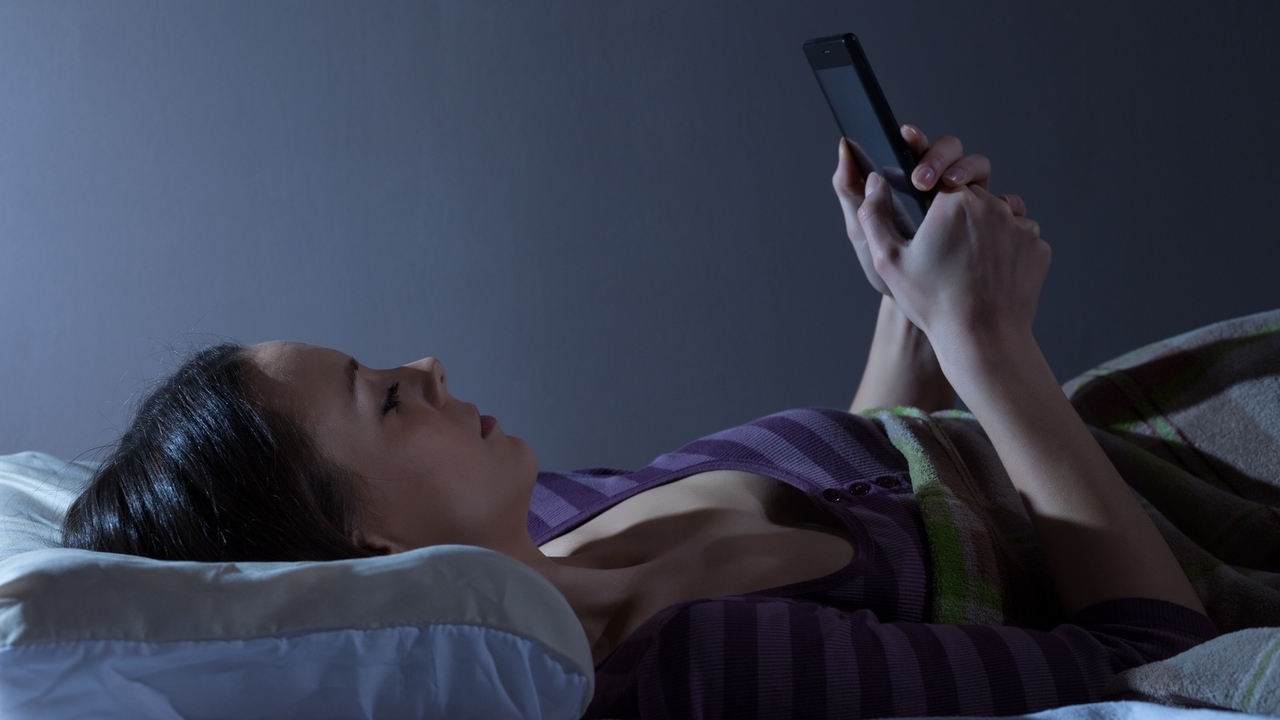 iStockphoto/Thinkstock
iStockphoto/Thinkstock
College students regularly complain of being tired, not getting enough sleep, or not being able to focus on tests.
While this is often brushed off as being a part of the partying lifestyle developed in school, the truth is that it is a problem experienced by thousands.
College students are especially prone to insomnia because of the rigorous demands placed on them by their classes, work schedules, and environment.
According to the Mayo Clinic website, "Someone with insomnia will often take 30 minutes or more to fall asleep and may get only six or fewer hours of sleep for three or more nights a week."
Many people think that insomnia is simply a lack of sleep, but the truth is that there are several types of insomnia, which are all triggered by their own causes.
The National Heart, Lung, and Blood Institute sums up the different types perfectly on their website:
“Insomnia can be acute (short-term) or chronic (ongoing). Acute insomnia is common and often is brought on by situations such as stress at work, family pressures, or a traumatic event. Acute insomnia lasts for days or weeks.
"Chronic insomnia lasts for a month or longer. Most cases of chronic insomnia are secondary, which means they are the symptom or side effect of some other problem. Certain medical conditions, medicines, sleep disorders, and substances can cause secondary insomnia.
"In contrast, primary insomnia isn't due to medical problems, medicines, or other substances. It is its own distinct disorder, and its cause isn’t well understood. Many life changes can trigger primary insomnia, including long-lasting stress and emotional upset.”
Not surprisingly, students who suffer from any form of insomnia tend to do worse in the classroom than those who do not have trouble with this issue. Thirty percent of the adult population has insomnia, according to the American Academy of Sleep Medicine (AASM).
In a study conducted by James F. Pagel of the University of Colorado for the AASM conference, Pagel concluded in his article on the website that, "In college students, the complaint of difficulty concentrating during the day continues to have a considerable impact on their ability to succeed in the classroom.”
Pagel went on to say, “This study showed that disordered sleep has significant deleterious effects on a student’s academic performance, including GPA.”
Those suffering from insomnia can take several measures to ease their sleep issues. The most obvious ones are that caffeine intake should be kept to a minimum several hours before going to bed and that a set time should be established at which to go to sleep.
However, contrary to popular belief, one should avoid going to the gym and eating a large meal before going to bed, because this will hinder you from catching those precious eight hours of shut-eye.
While there will always be times where we need to stay up late, for whatever reason, we should attempt to establish a reasonable hour to go to sleep and to wake up.
Creating a schedule for the body by doing this will help regulate it and may increase your ability to sleep through the night.
Lastly, the most important thing to do before getting in bed is shutting off all electronics at least thirty minutes before bed, says professor of sleep and psychology at UC, Berkley, Allison Harvey.
According to Harvey, we are made more alert by the presence of interactive technology. When we use this technology at night, it can cause insomnia. The body's circadian rhythm can be disrupted by the light from a computer screen. Poorer sleep is the end result.
Television does not cause this type of disturbance, however, because it is a passive technology, requiring no interactions.
So, if you are looking to improve your energy levels and decrease sleepless nights, create a sleep schedule for yourself and turn off those cellphones.
Resources:
"What Is Insomnia?" - NHLBI, NIH. The National Heart Lung and Blood Institute, 13 Dec. 2011. Web. 21 June 2012.
http://www.nhlbi.nih.gov/health/health-topics/topics/inso
Staff, Mayo Clinic. "Definition." Mayo Clinic. Mayo Foundation for Medical Education and Research, 07 Jan. 2011. Web. 21 June 2012.
http://www.mayoclinic.com/health/insomnia/DS00187/DSECTION%3Dsymptoms
McCann, Kathleen. "AASM News Archive." AASM. American Acadey of Sleep Medicine, 14 May 2008. Web. 21 June 2012.
http://www.aasmnet.org/articles.aspx?id=884
Totten, Sanden. "Using Technology before Bed Can Lead to Insomnia." KPCC. Southern California Public Radio, 7 Mar. 2011. Web. 22 June 2012.
http://www.scpr.org/news/2011/03/07/24654/using-technology-bed-can-lead-...
Reviewed June 22, 2012
by Michele Blacksberg RN
Edited by Jody Smith





Add a Comment4 Comments
I think it's all just part of the training. College is supposed to be difficult, how else are the students supposed to be able to face the real challenges that come after that.
March 15, 2013 - 5:06amThis Comment
I found your article to be thought provoking and you also raise many good things to consider. I'm glad I came across this website and saw your article. It helped me out with a paper I had to write for a class I'm taking for my major at my university. I will be citing you as a source. Thanks for the great article.
July 7, 2012 - 3:53amwww.freshman15.net/does-lack-of-sleep-cause-weight-gain
This Comment
I think that there are some additional reasons why college students suffer from insomnia. For example, dorm rooms and multiple roommates may not necessarily create the best conditions for sleep. As well, many students are too busy to take care of themselves or may be struggling with all the big changes (such as moving away from home) that are common during college years. I am happy to see meditation classes and yoga options on many campuses today – these are good ways for students to care for themselves and fight insomnia. There are also many good tips and resources online -- Belleruth Naparstek, for example, has a blog with tips for handling insomnia.
June 26, 2012 - 7:38amThis Comment
Thank you for your comment! The reasons you listed certainly are valid as well and should be taken into consideration by college students prior to embarking on this life changing experience.
As for the blog, that is much appreciated as well!
June 26, 2012 - 8:12amThis Comment